
The late, not so great George Best
In George Best, the football world lost a massive talent if not a truly great player, when the maverick Irishman died prematurely at only 59 in 2005. In the fifteen years since his tragic death, the debate has continued over his place in football, his ranking among the legends of the game. Best was a genius technically, blessed with the skills to enable him to do pretty much whatever he wanted on the football field. But he was also a flawed and addictive personality, less able than most professionals to deal with the pressures of professional football, more likely to be swayed from the straight and narrow by the temptations that would face any rich and over-hyped young man.
That being the case, Best could hardly have suffered a worse fate than to be taken onto the books of Manchester United as a callow youth, there to develop as a skillful footballer, but also to be lost in the maelstrom of hype and self-aggrandisement that has dogged the Old Trafford club since the start of the Matt Busby era and, particularly, since the Munich Air Disaster in 1958. For Best, it was the wrong club at the wrong time; he needed a different approach and a less relentlessly goldfish bowl existence. Stronger, less easily-led personalities than George Best prospered at Old Trafford, but the combination of George’s skill, personal attractiveness and extreme marketability made him ripe to be chewed up and spat out by the Man Utd/media publicity machine. Therein, the seeds of his eventual destruction were sown; Best was doomed by the unfortunate circumstance of becoming a Man United prodigy, his downhill path plotted even while he was enjoying such spectacular, early success.
It could all have been so different for George Best. What he needed was a better and more professional environment, somewhere his stellar talent could have been harnessed for the benefit of a crack team of inseparable brothers. Somewhere with a “Side before self, every time” mentality, with a manager who treated his players like sons and their wives and girlfriends like daughters-in-law, a place and a club where press flattery did not venture, but where instead a siege complex was fostered that strengthened the squad from within. George Best, had he but known it, needed Don Revie and Leeds United; if history had worked out differently, and Best had grown up alongside the likes of Billy Bremner, Eddie Gray, Peter Lorimer and ex-Man Utd star John Giles, then I would venture to suggest that his development and indeed his whole existence would have been along such radically different lines, he may well have been still alive today.
George was let down by his football club, its management and the surrounding hype and overcranked worldwide acclaim. He was considered by many to be the greatest of all time, a view he would publicly endorse on his own behalf on many occasions. And that says a lot about George, about his inadequate standards and lack of humility. It’s something that would have been ironed out of him swiftly and early at Elland Road. Such conceit was frowned upon in the ultra-professional environment at Leeds, where individual skill was fostered and encouraged mainly within the pattern and demands of team requirements. Those were of paramount importance in Revie’s blueprint, so you had world-class talents like Gray, Bremner and Giles willing, nay, eager to devote their own brand of genius to securing the optimum team results. They’d have kept young George’s feet on the ground alright, and the Leeds backroom staff would have been there every step of the way, nurturing Best’s talent, inculcating the team ethic, bringing him down when that was needed, boosting him when necessary. The fact that Eddie Gray succeeded at Leeds was proof that a properly motivated and disciplined Best could have succeeded as well – and he’d have a had a long career, a longer life, if only that could have been the case.
It’s such a shame about George. The Manchester scene was all wrong for him, as would most probably have been that of London. Moreover, the club where he landed, at such a tender age, was in the business of producing legends, media stars to feed the delusions of their fans and meet the post-Munich hype and voracious desire to be the biggest, the best, the most glamorous. It takes a hardy seedling to prosper and grow in a hothouse like that and, despite early promise and a devastating few years of gaudy brilliance, George was doomed to wither and fade far too soon. The scars of that traumatic fall – he won his last club honour at only 22 – affected him for the rest of his life, leaving him easy prey for unscrupulous advantage takers, and for the buzz and temporary relief provided by alcohol. Who can deny that the more focused atmosphere and environment of Leeds United would have kept Best on the right path, providing him with a stage on which his technical genius could flourish, giving him the tangible rewards his prime deserved and yet never received?
In the public consciousness, Best was the Best – because we’ve been relentlessly told that’s the case, which has a lot to do obviously with the media circus and public adulation surrounding such an over-hyped football club. But sober analysis identifies Best as a genius footballer who was not a team player, not a very professional player and certainly not, over the span of his career, a world-class performer. Best, for all his talents, was not in the top twenty of all-time greats – but he should have been. He could perhaps have been right up there, among the best of the best. That he wasn’t and isn’t is something revisionists will deny, but a look at the facts and stats tells its own damning story.
George Best could gave been a much greater footballer, and he could still have been with us today. If only he’d been lucky enough to have started out, under Don Revie, at Leeds United, just as the Super Leeds legend was being born in the early sixties. What a different and infinitely happier story his might then have been.


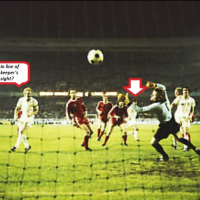

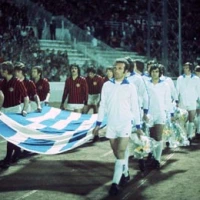
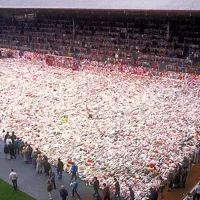
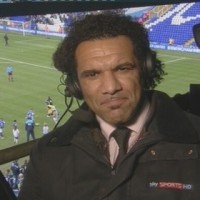

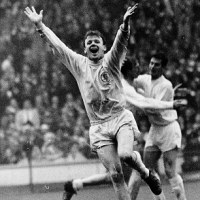











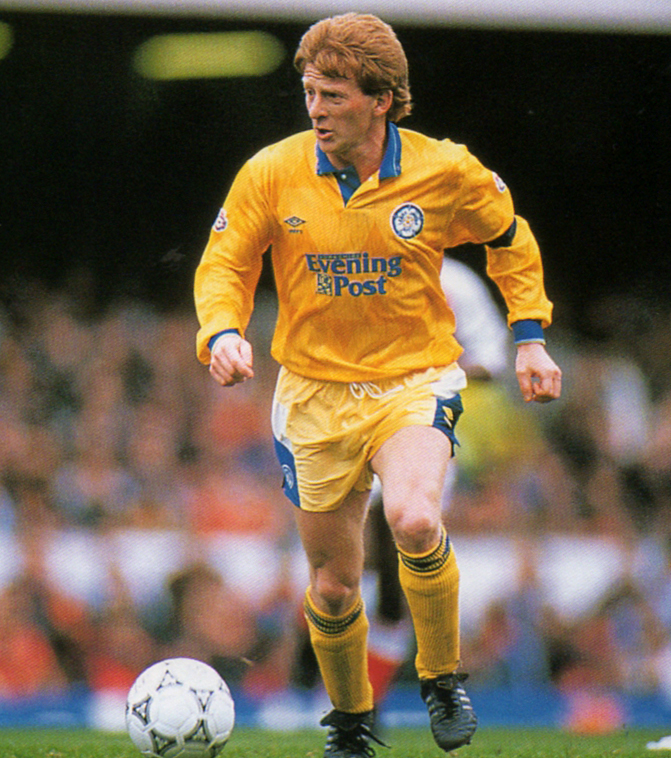

is it april the first ?
LikeLike
Don’t know what day it is, eh? Scum fan, then.
LikeLike
I often agree with you Rob but on this occasion I disagree- I don’t think he’d have got in the team at ER.
LikeLike
That actually struck me as I wrote the piece – who would he have replaced in the legendary first XI? Impact sub, perhaps??
LikeLike
Maybe Best could have made a short cameo if Leeds had been drawn against Northampton in the cup?. Other than that leave him in charge of cutting up the oranges.
LikeLike
Good article Bob,who knows how this would have turned out if George signed for Leeds.Oh how we could do with someone of the caliber of Don Revie they only come around once in a lifetime.
LikeLike
He would have got in any team! Miles better than Mick Bates,and he got in?The fact that he never got a sniff at E.R.thanks to Paul Reaney bears out your story Rob,but the temptations were there for any young man in those times.I don’t think any manager could control the likes
Best,Marsh,Worthington, Charlie George plus many more players.Leeds was also awash with clubs and Best would have been their top punter as he was in Manchester and London
LikeLike
Disagree mate. The discipline and family atmosphere at Elland Road was different class.
LikeLike
Interesting Rob. Really interesting piece. But ‘what ifs’ are an emotionally draining experience.
LikeLike
Nice piece Rob. Watched Best on many occasions, it was a privilege.
Its oh so different now, the players, the game, the attitude and the obscenity of money. I know I am old fashioned but like everything in life it’s not until you are old enough to have a past to compare with that you can make comparisons. Leeds and the Don were a family like you said and we all felt like we belonged.
Man U was and always will be just a big club, that’s it.
LikeLike
Even though I’m a scum fan, I have to agree with this cogent analysis – and a lot of my fellow scummers down here in Devon feel the same.
LikeLike
He certainly would have learnt how to pass the ball but I doubt he would have got in Revies team unless he went in goal.
LikeLike
Don’t know why I missed this particular thread first time round, but glad I found it anyway.
I’ll beg to differ, Rob. You rightly describe Best as a maverick; and we all know there was no place for mavericks at Elland Road under The Don. In my view, Best’s highly individual style (and attitude) would have had no place in such a close-knit team, where it was very much all-for one, one-for-all.
You only have to look at the odd clip of late-60s or early-70s MUFC games, where it’s clear that his team mates didn’t exactly appreciate his go-it-alone attitude, his determination to score even though a couple of team mates were in a better position. I suppose ‘greedy’ is the adjective I’m groping for here. Can you really imagine that kind of player fitting in at Elland Road back then? I, for one, don’t think so.
LikeLike
Good points, but I still feel the team ethic at Leeds would have subdued the maverick in Best while exploiting his genius for the good of the game. Gascoigne too, for that matter. What that lad needed was a spot of Sgt Wilko.
LikeLike
Indeed. I suppose I could add a footnote – I recall Don Revie saying in an interview that he considered Eddie Gray, on his day, to be George Best’s superior. Praise, indeed.
LikeLike
Yep. All the ability, much less of the ego and a team player par excellence.
LikeLike